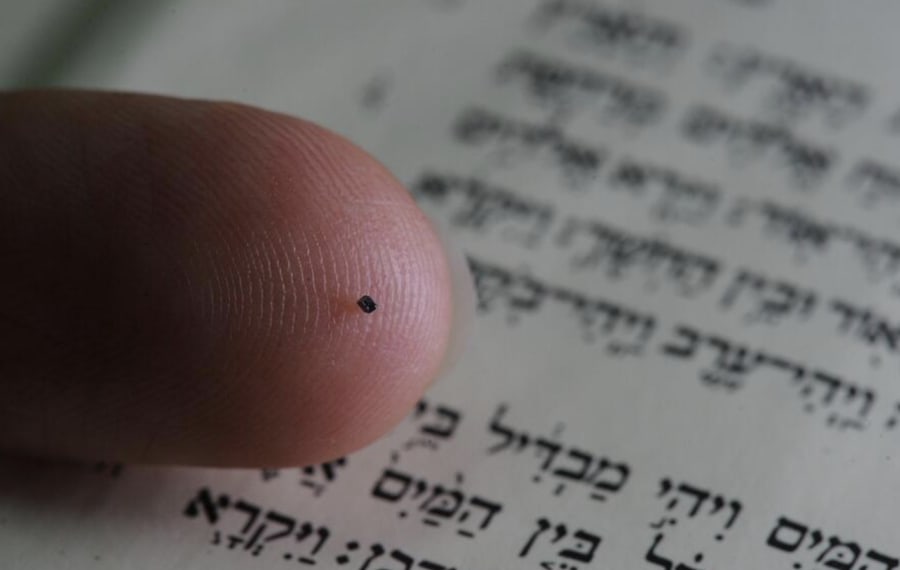The world’s smallest Bible is going to space with an Israeli astronaut
Israel’s second-ever astronaut Eytan Stibbe will carry a 0.5 square-millimeter Nano Bible to the International Space Station at the end of the month

The smallest Bible in the world is expected to make a journey into space as early as the end of March. Israel’s second-ever astronaut will take the so-called “Nano Bible” with him when he takes off to the International Space Station as a member of the Ax-1 astronaut team.
The Nano Bible is a 0.5 square-millimeter silicon nanochip on which the 1.2 million letters of the Hebrew Bible were etched with a focused beam of energetic gallium ions. It was developed at Israel’s Institute of Technology, known as the Technion, and is usually displayed alongside the historic Dead Sea Scrolls at the Israel Museum in Jerusalem.
“The Bible is the oldest and most important text for the Jewish people and one of the most important for the whole world. A cornerstone of human culture,” said Prof. Uri Sivan, the creator of the first Nano Bible and the president of the Technion. “The Nano Bible and its journey into space link the distance and time between the past and the future, between ancient human culture and the technological frontier."
Prof. Sivan and his doctoral student Ohad Zohar developed the idea of creating a Nano Bible in 2007, as part of a Technion educational program designed to stimulate young people's interest in nanoscience and nanotechnology.
The copy of the Bible that Stibbe will carry was created by Technion engineers in honor of the jubilee celebrations for the Israel Museum in 2015. Another copy was made in 2009 and presented as a technical marvel to Pope Benedict XVI by then-president Shimon Peres.
Stibbe said that taking the Nano Bible into space “will symbolize harmony between groundbreaking technology and respect for our heritage, as humanity.”
“It is an ancient text that was written using innovative technology and allows us to look with hope to the future, as well as with a smile to the past at the same time. I look forward to the opportunity to look at this technological marvel as I hover in space,” the Israeli astronaut added.
The upcoming mission, which will include three other astronauts and be the first all-private crew to visit the International Space Station, is scheduled to launch March 30. The mission will last 10 days.

Tal Heinrich is a senior correspondent for both ALL ISRAEL NEWS and ALL ARAB NEWS. She is currently based in New York City. Tal also provides reports and analysis for Israeli Hebrew media Channel 14 News.














